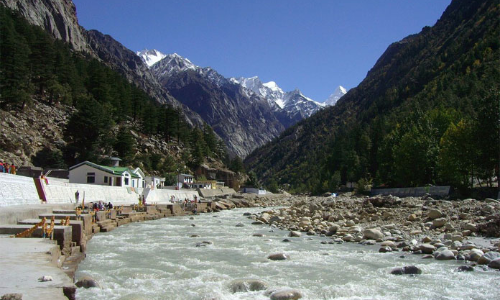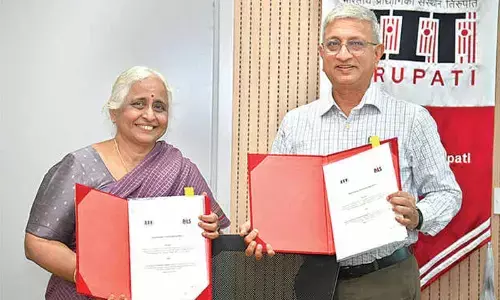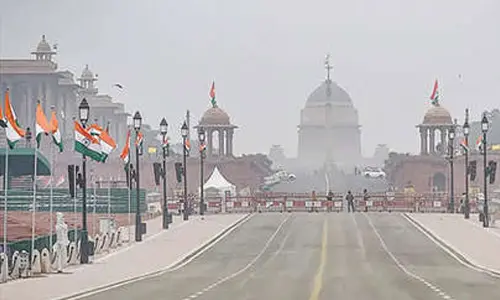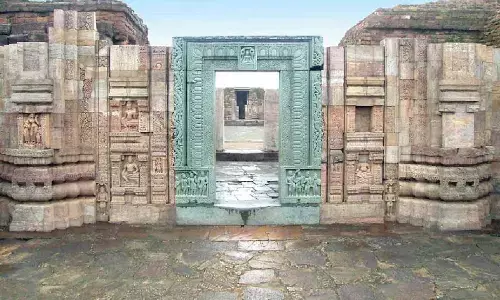The case against hydropower on the Ganga

The Union government must be congratulated for taking a decision not to make new hydropower projects on the Ganga River The issue of four underconstruction hydropower projects on the Mandakini and Alaknanda, however, remains unresolved
The Union government must be congratulated for taking a decision not to make new hydropower projects on the Ganga River. The issue of four under-construction hydropower projects on the Mandakini and Alaknanda, however, remains unresolved. About Rs 5,000 crore has been spent on these projects. The question is whether the benefits from scrapping the projects at this stage exceed the costs incurred till date.
The Union government is spending about Rs 20,000 crore in building Sewage Treatment Plants (STPs) on the Ganga. However, scrapping the four hydropower projects can reduce the expenditures on the STPs. One major measure of pollution of the river is the presence of harmful bacteria called coliforms. These are found in thousands of types. Each type of coliform is destroyed by a specific type of beneficial bacteria called coliphage which are also founds in thousands of types. A particular type of coliform can be destroyed only by a corresponding type of coliphage.
A study by the National Environment Engineering Institute, Nagpur brought out that the coliphages in the Ganga have unique “wide-spectrum” capabilities. One coliform can destroy many types of coliphages. These beneficent coliphages stick to the sediments of the Ganga and lay dormant until they sense the nearby presence of a coliform which they then destroy.
These coliphages give Ganga her self-purifying capabilities. The sediments have to be continuously created for these coliphages to survive. Further, the sediments have copper and microscopic quantities of radioactive thorium which give the water of the Ganga bactericidal qualities. The hydropower projects divert the water of the Ganga into tunnels or still them in reservoirs.
That removes the friction between water and stones and prevents the creation of these sediments. That harms the self-purifying capacity of Ganga and leads to additional expenditures on STPs. We must protect our biodiversity in the grim scenario of global warming. A number of species of fishes, turtles, snails and worms may die because of global warming. Other species may be able to survive.
These surviving species will provide us food and keep our rivers clean in the future. But we do not know which species will die and which will survive. Therefore, we need to protect every species. Many of these species require free flowing water to survive. The famous Mahseer fish of Uttarakhand migrates upstream to lay eggs.
The fishlings then flow down with the flowing water until they become big and migrate upstream in the next cycle. This migration is obstructed by the hydropower projects. The famous Snow Trout requires high levels of oxygen to survive. This level of oxygen is only available in flowing water. The scrapping of the under-construction hydropower projects will help these species to survive, conserve our biodiversity and help us survive global warming.
The purpose of economic growth is welfare or happiness of our people. The people of State of Washington in the United States petitioned to the government that the Elhwa Dam on the Elhwa River was blocking the migration of salmon fish and preventing them from fishing and kayaking. The government of Washington commissioned a survey.
People of the State were asked how much money they would be willing to pay to remove the Elhwa Dam and restore free flow of the Elhwa River. The survey found that the people were willing to pay much more than the benefits being derived from electricity generation and irrigation from the Elhwa Dam. The government removed the dam and restored free flow of the river on the basis of this survey.
The Indian Institute of Technology, Roorkee has estimated that people of India would draw a benefit of Rs 23,255 crore per year if the Ganga flowed freely. The benefit to the people of India would be Rs 2,325 crore per year if we attribute a mere ten percent of this value to the four under-construction projects. About Rs 5,000 crore has been spent on these projects till date.
The cost incurred by the country in scrapping these projects at this stage, therefore, would be a onetime payment Rs 5,000 crore while we will get a benefit of Rs 2,325 crore per year. This translates to a return of whopping 46 percent. That is good business.
The State of Uttarakhand gets 12 percent free power that is generated by hydropower projects. The State was touted as the future “energy-State” of the country at the time of its creation. This “free” revenue is used by the State for the welfare of its people. Scrapping the projects would deprive the State of this revenue and hit at the welfare of the people.
There exists and alternative though. The Ganga has two qualities — physical and psychological. Hydropower projects utilise the physical quality of falling from a higher to lower elevation. The alternative is to utilise her psychological qualities. I once did a survey of pilgrims at Haridwar, Rishikesh and Dev Prayag.
A total of 77 percent of the pilgrims replied they got mental peace from taking a dip in the Ganga, 26 percent begot health benefits, 14 percent begot better business, 12 percent were blessed with a child, and 9 percent got success in examinations. The establishment of hospitals, universities and software parks on the banks of the Ganga would provide much better success rate in hospital treatments and education.
These institutions will generate a large number of high-paid jobs in doctors and teachers. The State will get huge revenues from these activities that will more than compensate for the loss from foregone free power.
Hydropower is on the way out anyways. The cost of electricity from new hydropower projects is about Rs 7-11 per unit against Rs 3-4 per unit from solar power. According to the head of the Central Electricity Authority of Ministry of Power, solar power can be stored and used in the morning and evening when the demand is more at a cost of mere 40 paise per unit. It is for this reason that many hydropower projects are in financial trouble today.
The State may still feel shortchanged. The benefits from free flow of the Ganga will accrue to people of the whole country while the State of Uttarakhand would bear the losses. Therefore, the Union government should pay a “Ganga Bonus” to the State and make up the loss.
Swami Sanand, formerly Professor G D Agarwal of IIT Kanpur, left his mortal body late last year after fasting for 112 days seeking cancellation of these four under-construction projects. Another 26-year-old Brahmachari Atmabodhanand from Kerala has been on fast for 110 days at the time of writing this piece, seeking the cancellation of the same projects. I think the case for scrapping the project stands. Author was formerly Professor of Economics at IIM Bengaluru

















